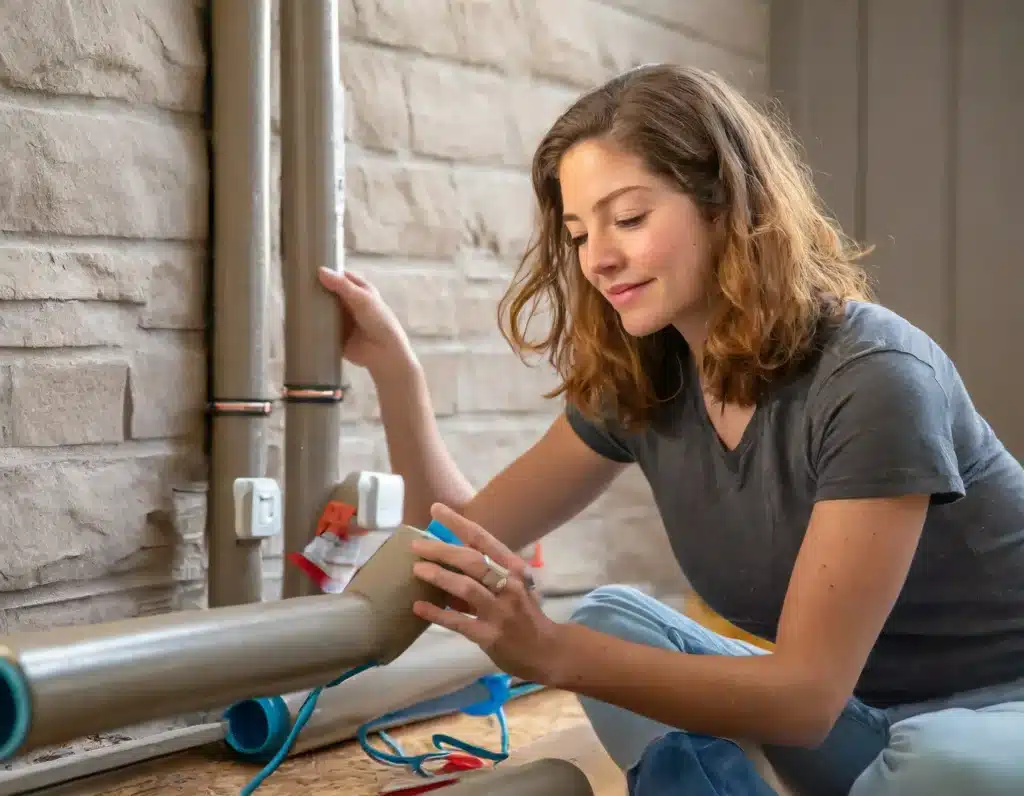The Ultimate Guide to Choosing the Right Water Heater in 2025
Let’s be honest—no one thinks about their water heater until it stops working. Then suddenly, you’re standing in a cold shower, wondering why you didn’t plan ahead. Well, 2025 is the year to change that. Whether you’re replacing an old unit or installing one for the first time, picking the right water heater isn’t just about hot water—it’s about efficiency, cost, and even environmental impact. Here’s the deal: we’ll break it all down for you.
Types of Water Heaters in 2025
Water heaters aren’t one-size-fits-all. In fact, the options have expanded—some are sleek, some are smart, and some could save you a bundle. Here’s what’s out there:
1. Tankless (On-Demand) Water Heaters
No bulky tank, just hot water whenever you need it. Tankless heaters heat water directly as it flows through the unit—think of it like a high-speed espresso machine for your shower. They’re energy-efficient but require a higher upfront cost.
2. Storage Tank Water Heaters
The classic. These heaters keep a reservoir of hot water ready to go. They’re affordable upfront but can waste energy reheating water you’re not using. Still, for larger households, they’re a reliable workhorse.
3. Heat Pump Water Heaters
These guys are like the hybrid cars of water heaters—they pull heat from the air or ground instead of generating it directly. Super efficient, especially in warm climates, but they need space and can be pricey.
4. Solar Water Heaters
Harness the sun’s energy to heat your water. Great for eco-conscious homeowners, but backup systems are a must for cloudy days. Installation costs can be steep, though incentives might help.
5. Condensing Water Heaters
If you’ve got a gas supply, these capture exhaust gases to heat water, making them ultra-efficient. They’re best for homes with high hot water demand.
Key Factors to Consider Before Buying
Alright, now that you know the players, how do you pick the right one? Here’s what really matters:
Household Size & Hot Water Demand
A single person won’t need the same setup as a family of five. Tankless heaters work well for smaller households, while storage tanks or condensing units handle bigger loads.
Energy Efficiency
Look for the Energy Factor (EF) rating—the higher, the better. Heat pumps and solar models lead the pack here, but your local climate plays a role too.
Fuel Type & Availability
Electric, gas, propane, solar… what’s available in your area? Gas models often heat faster, but electric ones are easier to install in some homes.
Upfront Cost vs. Long-Term Savings
Sure, a solar heater costs more now, but what about 10 years of energy savings? Crunch the numbers—sometimes spending more upfront pays off.
Space & Installation
Tankless heaters save space, but heat pumps need room to breathe. And if you’re retrofitting, installation complexity (and cost) can vary wildly.
2025 Trends You Should Know About
Water heaters aren’t stuck in the past. Here’s what’s new (or getting bigger) this year:
Smart Water Heaters
Wi-Fi-enabled heaters that learn your habits and adjust heating schedules? Yep, they’re here. Some even alert you to leaks or maintenance needs.
Hybrid Systems
Combining solar with tankless or heat pump tech is gaining traction. It’s all about maximizing efficiency without sacrificing convenience.
Government Incentives
Tax credits and rebates for energy-efficient models are expanding in 2025. Check local programs—you might snag a discount.
Eco-Friendly Materials
Manufacturers are using more recycled materials and designing for easier recycling at end-of-life. Sustainability isn’t just a buzzword anymore.
Installation & Maintenance Tips
Buying the right heater is half the battle—keeping it running smoothly is the other. A few pro tips:
- Get a pro for installation. Even DIY-friendly units can have quirks. A bad install can tank efficiency or even be dangerous.
- Flush your tank annually. Sediment buildup kills efficiency. It’s like forcing your heater to run a marathon with ankle weights.
- Check anode rods every 3-5 years. These sacrificial rods prevent tank corrosion. Replace them before they’re gone, or your tank’s next.
- Insulate pipes. Especially in colder climates—it keeps heat from escaping and reduces wait time for hot water.
Final Thoughts
Choosing a water heater isn’t just about avoiding cold showers—it’s about balancing cost, efficiency, and your home’s unique needs. The best pick for your neighbor might be all wrong for you. So take a breath, weigh the options, and remember: the right choice today means years of hassle-free hot water later.




